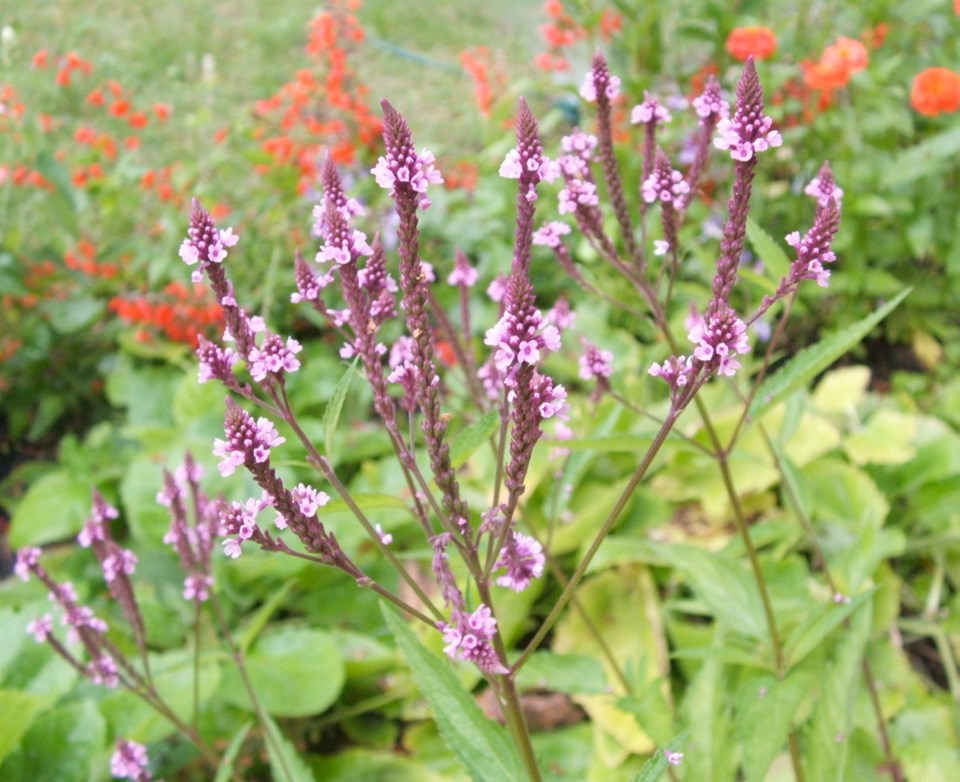Like clockwork every fall, the Plant World Seeds catalogue arrives from Newton Abbot in Devon, England, in the last week of October. The pattern continued this autumn, to be followed at mid-November by three Canadian catalogues all on the same day and another at November’s end.
I’m always keen to see what new flowers and vegetables will be introduced for the coming year’s garden. The 2015 catalogues held a bonanza of wonderful new varieties to try.
Though almost all my seed purchases are local or from Canadian catalogues, every year I look for a few unusual perennials, shrubs, climbers and vegetables to grow from two British seed companies: Chiltern Seeds and Plant World Seeds (PWS).
For lovers of the perennials Aquilegia (columbine), Dierama (wand flower, angels’ fishing rods), Primula and hardy geraniums, The PWS catalogue is a horticultural candy store overflowing with sweet delights.
Among the notable plantings from PWS in my garden is Salvia forskaohlei, one of the toughest and most drought-tolerant perennials I have. A base of large, hairy leaves gives rise to branching stems bearing white-tongued blue flowers. Equally long-flowering is Verbena hastata rosea, another showy perennial with spikes of sparkling pink flowers.
This year I plan to try Dahlia coccinea, a dark-leaved, red-flowering species that is one of the main ancestors of modern dahlias, and Paeonia obvata alba, a species peony with pure white flowers accented by yellow anthers and purple filaments. Graham Stuart Thomas, in his Perennial Garden Plants, describes this peony as being of “ethereal beauty.”
A climber I’ve chosen to grow is Clematis viorna, described as producing its pendulous, vase-shaped flowers from early summer into autumn. It’s been a while since I’ve grown The Sutton, a dwarf, self-supporting British broad bean. Time to revisit this “high-yielding” variety.
Ever since watching a documentary about a chef preparing meals for Queen Elizabeth and noticing how often he served the leafy green called samphire, I tried several times to grow it — with limited success. Now I notice that PWS lists “Chinese Leaves” (Okahijiki), described as being similar to samphire, having long, succulent leaves “rich in vitamins and minerals. A new cut-and-come-again vegetable.”
The 2016 gardening adventure begins.
Autumn stir-fry. Whenever I have leftover rice on hand, I think of stir-fry meals. One late-autumn stir fry turned out to be full-flavoured and colourful.
I began by heating butter and oil in a wok, and frying garlic and onion. The garden’s carrots cut in diagonal slices went in next, then wedges of the garden’s last purple-red Kalibos cabbage, strips of red pepper (from a greenhouse grower at my local farmers’ market) and chunks of bok choy. When everything was tender-crisp, I added cooked rice and covered the pot to let the rice warm.
Sometimes I’ll add sliced mushrooms, and once in a while cubed chicken or steak, to the ingredients to be sautéed. Served with a drizzle of tamari, the dish is warm autumn comfort food.
Easy seasonal decoration. Pots emptied of summer flowers are easily transformed into creative and colourful outdoor holiday displays. Look around the garden for likely ingredients in the form of evergreen boughs, both needle-bearing (fir, cedar, pine) and broad-leaved (camellia, berried skimmia and holly). Perhaps you have potential accents such as red-twigged dogwood or contorted hazel stems, and ivy for trailing down the pot sides.
If there is soil still in the pots, stick the stems into the soil; otherwise, simply arrange them in the pot. If desired, decorate the greenery and stems with Christmas ornaments and/or red ribbon, and set in a prominent place such as next to the front door. Outdoors, the arrangement will stay fresh and decorative for most of the winter.



